BILL NAYLOR introduces the spectacled owl, a beautiful if ferocious predator from the tropical regions of the New World.

OUT of the 55 or so species of owl in South America, the spectacled owl (Pulsatrix perspicillata) is one of the best known, and is exhibited in many of the world’s bird collections, zoos and falconry centres. As early as the 16th century, explorers to tropical South America wrote about the owl with a dark mask that frequented the forest and how its large eyes would stare you out.
Its eyes are no bigger than similar sized owls, but being set in a dark chocolate-brown facial mask, the bright-orange eyes (lemon-coloured in some subspecies) appear larger than they are. These owls see well in daylight and do not squint in sunlight like some other owls do. Like the other species of Pulsatrix, the contour feathers give the bird a plump and stocky appearance. Its two-tone plumage disrupts the outline of its body shape and, while it is the largest of the Neotropical owls at 51cm (20in) in length, its attractive colouring helps it to blend in with the forest foliage surprisingly well. Males are smaller than females.
The spectacled owl has a habit of perching under overhanging large-leafed plants, probably to avoid getting soaked in the wet season when the rain is relentless. The feathers on the face are quite long. Its bushy white eyebrows frame the dark masked facial area from which it gets the name spectacled owl. The lores are also white and the large horn-coloured beak develops a greenish tinge as the bird matures. Although largely hidden by heavy feathering, like most South American owls, the talons are large and so, in captivity, spectacled owls require appropriately sized perches.
Denne historien er fra January 17, 2018-utgaven av Cage & Aviary Birds.
Start din 7-dagers gratis prøveperiode på Magzter GOLD for å få tilgang til tusenvis av utvalgte premiumhistorier og 9000+ magasiner og aviser.
Allerede abonnent ? Logg på
Denne historien er fra January 17, 2018-utgaven av Cage & Aviary Birds.
Start din 7-dagers gratis prøveperiode på Magzter GOLD for å få tilgang til tusenvis av utvalgte premiumhistorier og 9000+ magasiner og aviser.
Allerede abonnent? Logg på
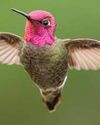
The World's Best-Known Hummingbird?
Intensively studied, the gem-like Anna’s hummingbird is a welcome visitor to the gardens of America’s most populous state: California. Bill Naylor investigates its life history
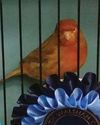
The charm of the English Cinnamon
Despite its long and complicated history, the true Cinnamon canary is still with us – in the hands of a tiny group of breeders. DONALD SKINNER-REID reckons it deserves wider appreciation
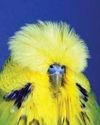
Spangles: a personal overview
FRED WRIGHT relates a budgie story of over-exploitation, consequent problems and abundant potential for the future

New converts to old breeds
Old and rare canaries have a reputation for adding fresh interest and challenge to the hobby. PETE HOOK and NICK JOY agree, and explain the birds’ charm to Dave Brown

Themed aviaries are a hit with the public at annual Stafford show
DECORATIVE AVIARY DISPLAYS from a CBS and an online bird keeping advice group were voted in the top three by visitors for the inaugural Stafford Aviary Competition.
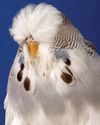
Pieds with potential
More than just a lesser variety, the dominant pied will introduce challenge and change into most studs, reckons CLIVE WAKEMAN. Here he discusses pairings to try and others to avoid

Club News
Welcome to the club and show pages – the bit that’s all about you Results: convention, specialist & rare and Breeder of the Year
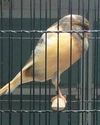
Canaries Month by Month:
With Christmas around the corner, BRIAN KEENAN is well into his winter programme, and reckons he might deserve a nice outcross
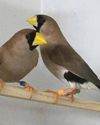
Smart Choice, Docile Nature
Dave Brown welcomes the masked grassfinch to his birdroom and shares advice on this lovely Australian species
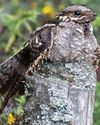
The truth about the ‘flying toad'
Odd local names and weird superstitions can’t hide the beauty and elegance of the nightjar, a species that has made a fascinating subject in a few zoo collections, reveals BILL NAYLOR